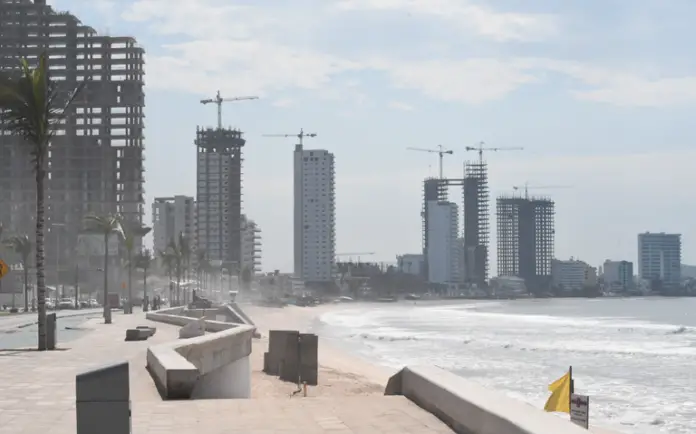
“Foreigners have lost interest in purchasing properties on Mexican beaches such as Acapulco, Puerto Vallarta, Cancun, Tulum, Mazatlan or Los Cabos, which just a few years ago were the favorite destinations for buying houses or apartments to live in front of the sea.
So far this year, the number of permits requested by foreigners to buy a property has barely reached 1,412, the lowest in the last decade, according to data from the Ministry of Foreign Affairs (SRE), in charge of processing the creation of trusts through which a citizen of another country can carry out this operation.
Before 2013, when Article 27 of the Constitution was modified, foreigners could not acquire properties on the border and on Mexican beaches for strategic military reasons, since it was considered a risk of invasion to establish citizens of other countries on national borders and coasts.
With the reform, foreigners can now acquire properties in these areas, called restricted, as long as the use of the land is intended for single-family housing and exclusively. The law establishes that if it is used for other purposes, the foreigner will lose the assets acquired for the benefit of the nation.
The constitutional change turned Mexico into a refuge for thousands of foreigners, mostly retired Americans, who avoided the stress of high inflation and interest rates in the United States by buying houses on the Mexican coast.
Destinations such as Puerto Peñasco, in Sonora, or Los Cabos, in Baja California, sold up to fifty houses or apartments to foreigners per month, according to the files of the Sonoran Cadastral and Registry Institute and the Public Registry of Property and Commerce of Baja California.
According to the information obtained, the destinations where violence has overflowed, such as Mazatlán, in Sinaloa or Acapulco, in Guerrero, are those that have lost the most appeal.
Every year, John would come to spend the Christmas holidays in the oceanfront apartment he bought in 2015 in Mazatlán, escaping the cold in his native New York, but this year he decided not to come because of the alert that the State Department issued three weeks ago to avoid traveling to the area due to the violence in Sinaloa.
“Not only am I not going to go, but I am also seriously thinking of putting the apartment I bought in Mazatlán up for sale, because we do not believe that security will improve in the short term. I will have to evaluate it carefully because surely due to the violence we are losing capital gains and when we want to sell later, the price will be depreciated,” he said.
In a telephone interview, he shared that he acquired the property because when he visited Mazatlán in 2000 he fell in love with its climate, its sunsets and above all its tranquility. Something that, he said, had been lost little by little since the capture, in 2014, of Joaquín El Chapo Guzmán, in a hotel in Mazatlán.
“We thought that with the capture of El Chapo Guzmán in 2014, security would increase, because there would be a criminal, one of the top leaders of organized crime, less on the streets, but it was quite the opposite, violence has been increasing and today it is practically unsustainable,” he said.
John added that when he was not in Mexico he used to rent his apartment to friends, “but since last year few have wanted to go to Mazatlán because of what they hear on the news.”
Mazatlán is one of the destinations with the most significant drops in requests from foreigners to buy property: only four this year. Another is Acapulco, in Guerrero, which from being considered “the pearl of the Pacific” in the mid-twentieth century, is currently the fifth most violent municipality in the country, according to figures from the National Secretariat of Public Security.
Chiapas, Oaxaca, and Veracruz also registered a decrease in applications from foreigners to buy beach properties, while Yucatán, Quintana Roo, Nayarit, and Sonora concentrated the applications for the acquisition of properties facing Mexican coastlines, mostly from Americans and citizens of European countries such as France, Spain, and Germany.
Applications were also processed from citizens of other regions of the world such as Asia, specifically Japan, and Israel, in the Middle East.
Source: elsoldemexico






